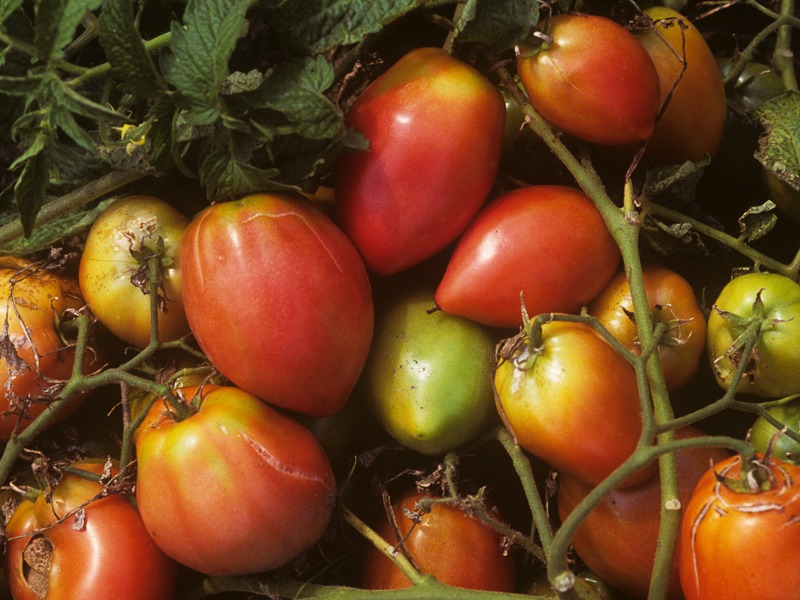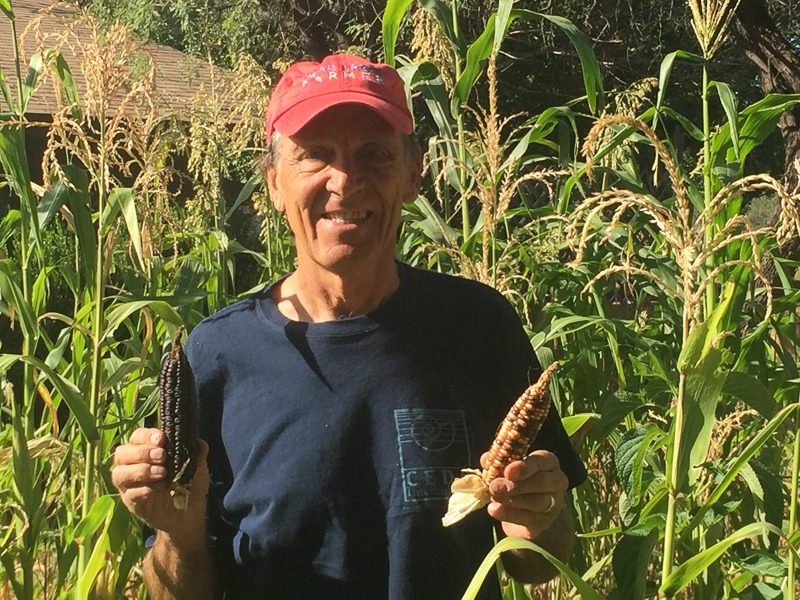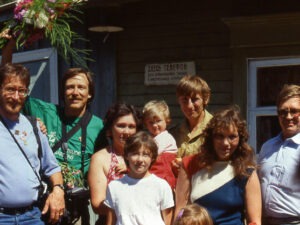Stewardship Stories: Bill McDorman

Bill McDorman
High Altitude Garden Seeds/Seeds Trust

Bill McDorman started High Altitude Garden Seeds (which later became Seeds Trust) in 1984 while living in a small mountain town in Idaho. He hoped to offer varieties best suited to the cold, short-growing season of the area.
After five years of searching the globe for varieties that would grow well in his backyard, Bill embarked on a journey behind the Iron Curtain to Siberia. There he hoped to find the perfect short-season tomato.

While there, Bill and his then-wife, Barbi, stopped at the Institute of Horticulture in Barnaul, Russia. The institute employed 20 full-time Ph.D. staff members who bred vegetable varieties uniquely for Siberia’s limited growing season and harsh climate. “I asked if I could get some seeds… the rather stern director, this woman said ‘Nyet, no!’ that I had to have permission from Leningrad and St Petersburg, which was 5,000 kilometers away.”
Bill toyed with the idea of sneaking seeds out of the facility, but decided against it, realizing that if he was caught, he might be sent to a KGB work camp. After their tour of the facility was complete and Bill had boarded the bus to leave, he heard a knock on the bus window. Outside stood one of the PhD breeders named Galina, who motioned for him to slide open his window. Bill did, and as soon as the window was open, Galina removed a package from under her smock and passed it to him.
“I look down and she’s gone,” recalled Bill. Not sure of the number of laws that had just been broken in the exchange, Bill sat on the package until the bus was rolling. Only then did he dare peek inside, and discover that the clandestine package contained samples and lab notes for 60 different varieties of tomatoes from the breeding work at the facility. “It was a gift of unbelievable courage I will call it.”

Almost all of those varieties went on to strengthen Bill’s business. They include varieties like ‘Olga’s Round Yellow Chicken,’ ‘Mother Russia,’ and ‘Galina’s Cherry’ tomatoes. Bill sold High Altitude Seeds in 2011 and now tours the country with his wife, Belle, teaching Seed Schools. Seed Savers Exchange preserves over 40 varieties of vegetables that are from Bill and High Altitude Garden Seeds.
Seed Savers Exchange has led the heirloom seed movement since 1975, inspiring a generation of seed companies to specialize in rare, regionally adapted, delicious, and irreplaceable open-pollinated varieties. Many of these companies were founded by our own Seed Savers Exchange members. Rather than allowing heirloom and historic varieties to vanish or go unnoticed, these members launched an uncoordinated, organic, and persistent resistance to the disappearance of heirloom seeds. This first wave of heirloom seed companies did not offer seed catalogs in response to consumer demand. Instead, they created it.
Originally a part of the “Rise of the Heirloom Seeds” exhibit made possible by The 1772 Foundation.
This is the story of one of nine small seed companies and a few of the varieties they have preserved. While each and every one of their backgrounds is as unique and bold as the varieties they share, they all have one thing in common: the passion for sharing seeds.
Bios written, interviews, and correspondence by Kelly Loud with help from Sara Straate.
Special thanks to the following people: Alan and Linda Kapuler, Suzanne Ashworth, Craig Dremann, Steve Sando, Mike and Denise Dunton, Tom Wagner, Joanne Ranck-Dirks, Sue Ellen Majer, Bill McDorman, and Glenn Drowns.